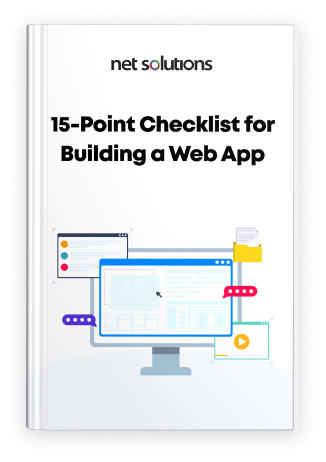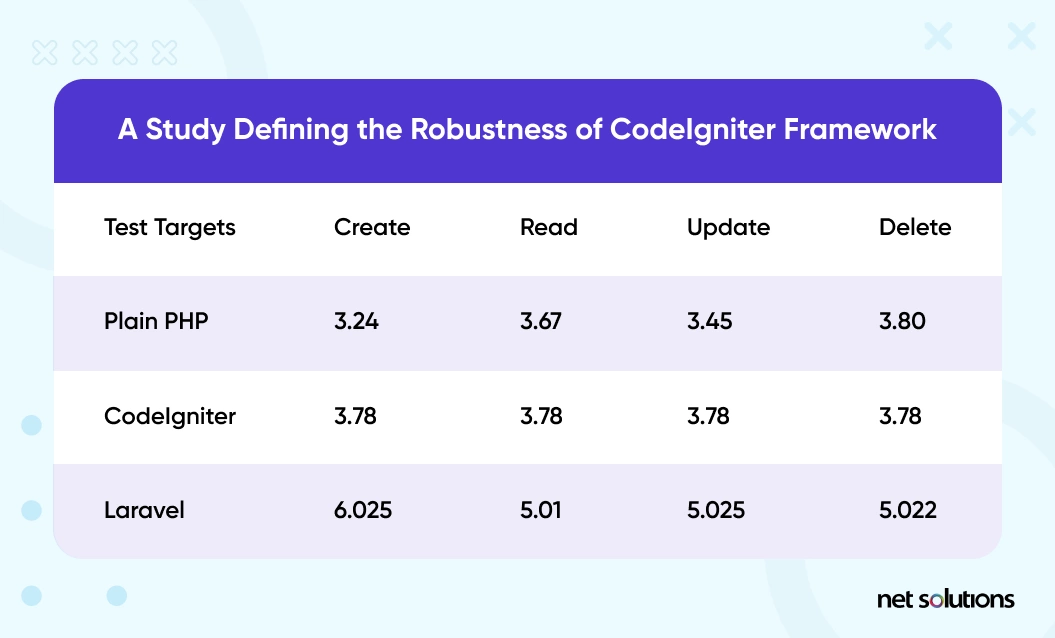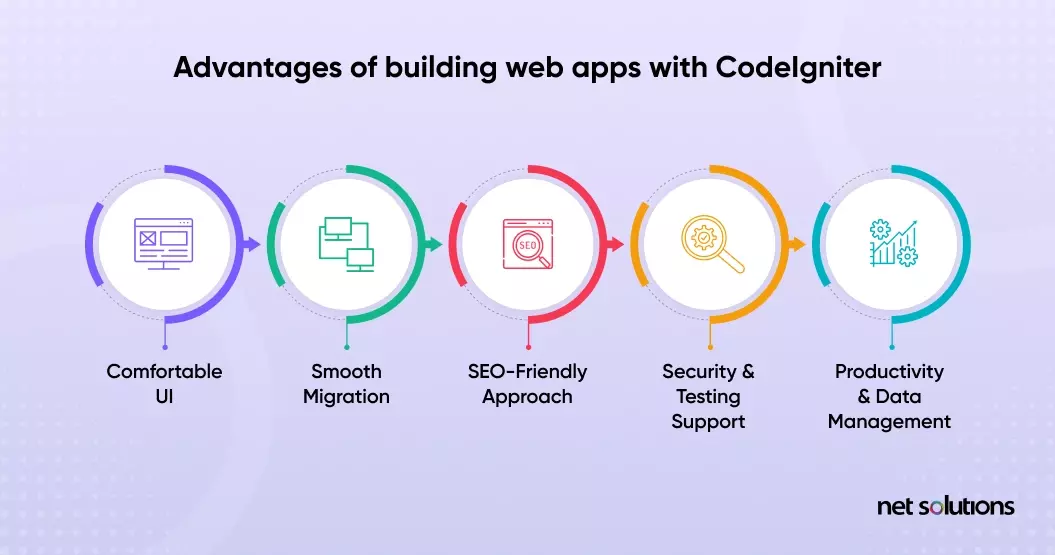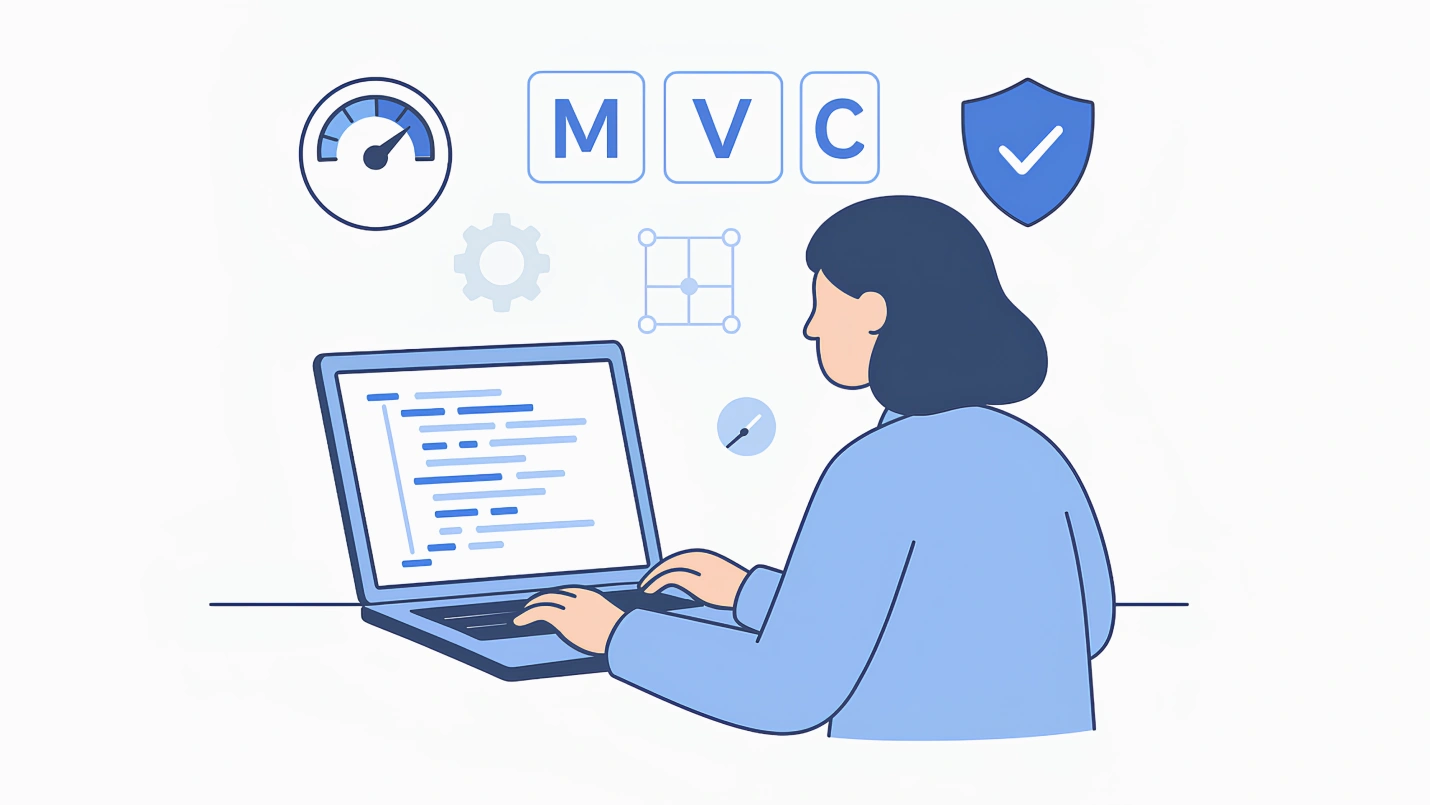Summary: PHP is a powerful, dynamic language for web development. While Laravel & Symfony remain some of its most talked about frameworks, CodeIgniter has also gained attention because of its versatile features. Read on to learn what features make it a favored framework with businesses wanting practical & functional websites.
If I had created a Blog page with CaliforniaStories as the keyword and made a list of everything in California that has had an impact, I’d have Silicon Valley top my list. I would also then remember Rick Ellis and his experience with PHP.
This is where the story started:
“I have spent a couple of weeks researching and installing PHP frameworks, really banging on quite a few of them, and I was absolutely dismayed.”- Rick Ellis, founder of EllisLab, the company behind ExpressionEngine and CodeIgniter
Rick was disappointed but didn’t forget those gaps in his PHP experience. He simply went ahead and wrote his PHP framework!
And the name “CodeIgniter” entered the dictionary of software parlance.
Did you know that Rasmus Lerdorf, the creator of PHP, likes CodeIgniter because it is faster, lighter, and the least like a framework?

We respect your privacy. Your information is safe.
What is CodeIgniter?
An open-source software rapid development web framework meant for creating dynamic websites, CodeIgniter is based loosely on the model–view–controller (MVC) development methodology. It enables faster deployment of projects than if somebody were to write the code from scratch. There is a rich set of libraries, a comfortable interface, and a logical structure to access the libraries.
Who wouldn’t like less code writing and a ready project in hand? And that’s precisely what CodeIgniter grants you on a platter.
PHP today supports 80% of the websites and has been around for 25 years. It is installed on over 2.1 million web servers worldwide, and at least 378 million web applications are running on it.
Since PHP tightened its grip on the programming world, many frameworks Laravel, Symfony, CodeIgniter, and Yii—entered the market with their tools and functionalities. The aim of all of them is better and faster completion of small and large web development projects. CodeIgniter was the first to gain traction. CodeIgniter helps develop web applications that are simple, elegant, and user-friendly.
Interesting CodeIgniter Facts
- Made public for the first time by EllisLab in 2006.
- Started as an amalgamation of some modified general-purpose classes taken as an extension from ExpressionEngine, Ellis lab’s flagship CMS.
- Application-specific code was, of course, stripped out.
Chronologically,
- ExpressionEngine 2.0 was launched in 2009
- British Columbia Institute of Technology took ownership of the project in 2014
- CodeIgniter 4 was launched in 2020
Features that make CodeIgniter a good choice for PHP web development projects
The websites of prominent organizations like Nissan, Buffer, and Casio have taken advantage of the CodeIgniter PHP framework.
And for good reasons, I guess!
Look at all these features that CodeIgniter offers:
1. Smaller Footprint
Think of it as pride or confidence, but here’s what the CodeIgniter official website says
CodeIgniter Rocks. CodeIgniter is a powerful PHP framework with a very small footprint….
“Lightweight” is the word for the CodeIgniter framework.
CodeIgniter has a significantly smaller footprint as compared to its other PHP counterparts. It is only an incredible 2MB download, including the user guide! But who says small isn’t powerful? CodeIgniter is not only fully self-contained and independent of other frameworks but also faster than most of its competitors.
Result? It eliminates the need to optimize the framework-based performance of the website.
A study on the ‘Memory Usage’ for Laravel and CodeIgniter framework, published in The International Journal of Current Trends in Engineering & Research (IJCTER), showed how CodeIgniter performs better than Laravel in terms of ‘Memory Usage.’ A key excerpt from the study is as below:
Two functionally equivalent blogging web applications were developed and subjected to an experiment to evaluate and measure the ‘Memory Usage’ of CRUD functionality for both frameworks. The following results make CodeIgniter an undisputed winner in terms of ‘Memory Usage.’

2. Less Code & More Speed
It does not take long to learn CodeIgniter. Moreover, it quickly pays for your effort in the time saved later. When you use CodeIgniter as a PHP framework, you type less and thus make fewer mistakes, which leads to spending less time debugging your code.
And don’t we all know – the smaller the code, the less space it takes, and the faster it is?
Look at this as an example of Writing a Database Query:
The function within the PHP program to query a MySQL database is as follows:

The function to handle a similar query with the CodeIgniter framework is as follows:

Compare the character counts in both cases; you will find 244 characters for the first case and 112 for the CodeIgniter framework. Building a website with the CodeIgniter framework leads to less code, thus, fewer errors.
Not only is CodeIgniter a convenient framework to handle and learn for those working in PHP, but it also tends to load fast. Using CI to develop professional applications can happen more quickly. It loads more quickly than most other modern frameworks.
3. Security
The user guide of the CodeIgniter framework states:
CodeIgniter is fairly restrictive regarding which characters it allows in your URI strings in order to help minimize the possibility that malicious data can be passed to your application.
If a secured website is the primary factor that your business demands, Codeigniter is undoubtedly a great choice. It makes it easier for programmers to write secure PHP applications by providing several features. CodeIgniter framework can easily tackle threats like SQL injection, cross-site scripting attacks, and remote code execution. Moreover, its cookie encryption and decryption features enhance the product development process. Apart from these features, you can improve the website’s security by installing several plug-ins.

4. Simple & Expandable
CodeIgniter is simple to use and easily expandable too. It makes it easy to bring variations, include new libraries, and change the behavior with minimal effort. There are built-in libraries like calendar, e-mail, uploading, unit testing, validation, and zip encoding. Not to forget the default helpers for file handling, forms, arrays, directories, strings, etc. An additional plus point is that one can develop new codes too.
A simple UI makes finding bugs that could obstruct a website’s functionality easier. The net result is an enhancement of the user experience.
The easy installation is a savior. You just need to upload the files to the server, and they will be ready to use. Moreover, using it enables you to adjust data – you can modify columns (add or remove) through the database forge library.
5. Support & Documentation
The user community for CodeIgniter is active and an ever-increasing one. You can find more than 60,000 members in the support community at any time. The forum support adds to the ease of using it.
The nature and amount of documentation are excellent here, and it helps developers organize and refer to the codes being used. It assists in future references also. When alterations are used, these references come in handy at any time. If you have a challenge while working, there is a strong chance that somebody would have already worked on it, and you would get all your help for resolving issues.
Interestingly, the documentation includes other PHP frameworks, too, due to the growing and vital community it is backed up by.
6. Architecture
The CodeIgniter framework uses the Model-View-Controller (MVC) architectural design. These are industry standard practices for working with web applications. The data, presentation, and business logic all get separated in the MVC. There are specific built-in components for sending emails, database management, and session management. Moreover, features that are built in are formulated to work independently without relying on other components. It is easy to maintain and make upgrades then.
As per the main CodeIgniter website, the framework is right for you when,
- You want a framework with a small footprint, nearly zero configuration, no use of the command line, and no adherence to restrictive coding rules.
- You need exceptional performance.
- You are not interested in large-scale monolithic libraries like PEAR.
- You do not want to be forced to learn a templating language (although a template parser is optionally available if you desire one).
- You eschew complexity, favoring simple solutions.
- You need clear, thorough documentation.
Why is CodeIgniter a good choice for businesses?

Several eCommerce businesses consider CodeIgniter the perfect choice for their websites. The MVC architecture, the smooth learning curve, the small footprint, and the above features create high-functioning websites that can push your business forward. And these below significantly drive a business to work with this framework.
1. Comfortable UI
CodeIgniter is the perfect choice when businesses need a website that is efficient, responsive, and smooth functioning. It lends flexibility to a platform. The feature offers architecture and easy detection of bugs & errors, making it convenient for developers to perform several front-end and back-end tasks related to applications.
2. Smooth migration
Ask Udemy & Adobe, and they’d confirm this! Businesses find it convenient to migrate from one platform to another without interruption in terms of both database migration & updates. Migration support is a big plus for businesses seeking to create a platform.
3. SEO-friendly approach
CodeIgniter could be a savior for businesses since it comes packed with an inherent SEO-friendly feature pack. Businesses seeking to touch the top rankings on Google would choose to have this base. The features support a consistent website structure because the functionality can be enhanced without disturbing the website’s layout.
4. Security & Testing support
CodeIgniter has various state-of-the-art encryption & decryption characteristics that make this framework more reliable than many others. A business that seeks trustworthy technology for its web applications will be better off choosing CodeIgniter. This is especially true for websites in the eCommerce category, which will incorporate a payment gateway. Add to this that developers can utilize the step-by-step testing methods while building the websites.
5. Productivity & Data management
Built-in features for product management, payment gateway provision, and shipping cart management make this an ideal choice for eCommerce websites that seek a seamless customer experience. The simplicity that the framework offers encourages productive web applications. Both coding and developing time stand considerably reduced. Error checking, debugging, and convenient testing make using the CodeIgniter framework for web applications more accessible.
Laravel vs. CodeIgniter – A comparison
Over millions of websites use PHP as a general-purpose scripting language. It can be embedded into HTML, has a dynamic nature, has volumes of credibility, and is preferred by many developers for building customized solutions.
Laravel and CodeIgniter are two well-known frameworks of PHP, and both come with unique specifications and benefits.
Laravel is back-end, open-source, and inspired by Symfony, another PHP-based framework. The source code is hosted on GitHub and is licensed under the MIT License terms. It is considered a trustworthy framework since it follows very explicit language rules.
CodeIgniter seems to have been made for developers looking for simple yet well-structured frameworks for designing versatile and full-featured web applications. It is a widely preferred framework used for generating dynamic websites. It brings a lot of freedom for consumers, so they don’t have to depend only on the MVC development method. Third-party plugins are allowed here, which accommodates even complex functionalities.
| Laravel | CodeIgniter |
|---|---|
| Laravel has a purely object-oriented database model. | Code Igniter has a relational object-oriented database model. |
| It comes with a built-in module. | It doesn’t come with a built-in module. |
| It has an Eloquent object-relational mapping. | It has a Doctrine Datamapper Gas mapping. |
| It follows the MVC filing structure with a command line tool known as Artisan. | It also follows the MVC structure but provides easy boarding based on object-oriented programming. |
| Laravel is good for front-end developers and comes with the Blade template engine. | CodeIgniter is easy to use, and there is no template engine. |
| In terms of libraries, it provides official documentation, which is very helpful. | It has built-in functions. |
| It supports explicit routing. | It supports both explicit and implicit routing. |
| Laravel provides many added features and functionality that are complex to use for less experienced development professionals. | CodeIgniter is a more straightforward framework to use. |
| Laravel has an authentication class feature that helps implement authentication and authorization rules. | CodeIgniter does not have any built-in authentication features. The developers need to authorize and authenticate users with the custom CodeIgniter extensions. |
There is no set rule for choosing one out of these two. You could use the following aspects as guiding factors, although the final choice would depend on the nature of your project:
Use Laravel when-
- You need to build larger websites with advanced, complex features
- You’re creating data-driven web apps that would involve an extensive database
- You want a full-stack framework for covering the complete web development cycle
CodeIgniter might work better when-
- The need is for a minimalist framework without built-in data management or testing tools.
- You are building eCommerce platforms
- You need simple, scalable websites
- You need development speed and high execution
How can Net Solutions assist you in building high-quality Web Apps?
At Net Solutions, we excel in combining the human element of digital design with the software knowledge required to provide application development as a service for businesses. We build digital products that propel success for years to come. What is on offer is the functionality of a full-service design agency. Our graphic and web-design teams offer human-centric solutions required to design and launch great web applications.
We have smart, scalable web development solutions for all industries. Agile approach, lean methodology, and state-of-the-art technology fuel the design & build of products for a global marketplace. We have been instrumental in empowering digital transformation and exponential growth in an increasingly connected world. We excel in bringing about accelerated product strategizing & road mapping, global product development, digital organizational empowerment, and digital product innovation.
Whether you’re a mid-sized business or an enterprise client with complex needs, we can build digital products that will propel you ahead.
Read here to find out how Net Solutions optimized a range of features to create a powerful, state-of-the-art e-commerce website for Euro Car Parts (ECP). We have proven ourselves invaluable partners, for ECP, assisting the business to grow from an e-commerce novice to an innovative leader. The net result has been exceptional sales and phenomenal success.
Frequently Asked Questions
The library is an essential part of CodeIgniter and works to increase the developing side of an application. All libraries exist in the ‘system’ folder. If you create a library, it will get stored in the ‘Application’ folder – this helps separate the local & global framework resources. You can build a new library, extend native libraries, or replace native ones.
No, the difference is between the ‘function’ and the ‘class.’ A ‘helper’ is a file with a set of related functions in a particular category. They homogenize and make repeated functions more speedy. You can use them everywhere – models, views, controllers. A library, on the other hand, is a class.
CodeIgniter is an MVC framework with a low footprint and is massively scalable. It considers aspects like security and bug handling and can handle applications where massive data flows are to be addressed. Larger applications call for a test-driven environment which CodeIgniter provides very well and therefore supports the development of these apps. User-friendly tools and interface help the development procedure.
The essential features of CodeIgniter make it a preferred choice for many businesses for their applications. Feedcump, Buffer, Cassio computers, Nissan, Creditflux, McClatchy, and Bonfire, are some prominent names using CodeIgniter. Some other notable names are Udemy, Ola, BirdBiew, SocialDog, and Accenture.






